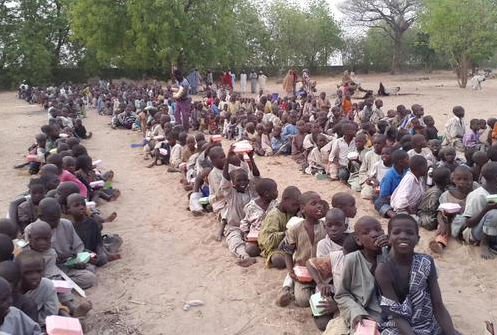There are no products in your shopping cart.
| 0 Items | £0.00 |

 BRITAIN is to donate £22m towards feeding victims of the insurgency on northwest Nigeria through the United Nations Children Fund (Unicef) as part of its assistance to displaced persons left destitute by the Boko Haram crisis.
BRITAIN is to donate £22m towards feeding victims of the insurgency on northwest Nigeria through the United Nations Children Fund (Unicef) as part of its assistance to displaced persons left destitute by the Boko Haram crisis.
Since 2009, Nigeria has been battling with Boko Haram insurgents in the northeast of the country and the crisis has created the largest number of internally displaced persons (IDP) on earth. Unable to return home, these refugees live in IDP camps, where they are wholly dependent on food aid as they cannot go back home to cultivate the land.
Sanjay Das, Unicef's nutrition manager, said the funding followed the success of an initial fund of $10m which was expended on the treatment of 233,000 malnourished children in northeast Nigeria between October 2018 to May 2019. He said that money was released by the United Kingdom through her Department for International Development (DFID) and was spent on nutrition complements and drugs to tackle cases of malnutrition in the region.
Speaking in Maiduguri, the Borno State capital, Mr Sanjay said that the DFID has released the fresh £22m to comprehensively tackle the problem of malnutrition in the region for three years. He added that under the latest intervention, which spans from April 2019 to March 2022, 87,000 persons have been targeted.
According to Mr Das, not only malnourished children would be covered under the latest intervention but their mothers too. He added that infrastructure would also be put in place with the money, lamenting the fact that earlier interventions were faced with some challenges including insecurity which made certain project areas inaccessible.
Mr Das also noted that the medical team were not able to access some areas in Borno State during the rainy season due to flooding and because some parts of the state have a scattered populations, it was hard to bring people together for treatment. Last week, however, the Bakasi IDP camp, which houses 39,176 persons was visited with 105 refugees treated.